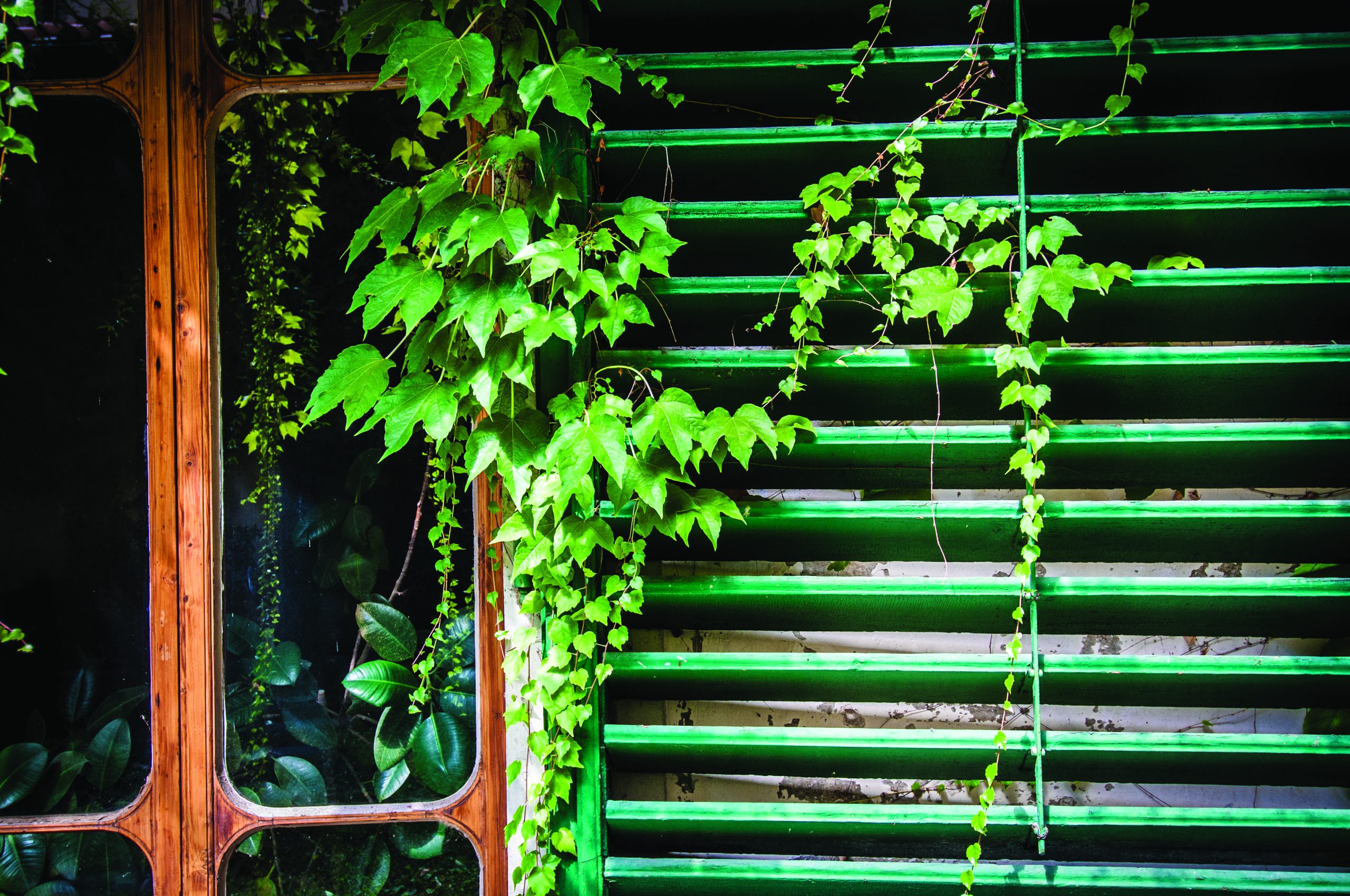Lilly Vergnes' solo exhibition will remain on display at the Palazzi Community Center until February 11, 2026

Growing Food for a Better Tomorrow
The Palazzi Community Center Presents La Botanica
In the art-adorned hallway of the Palazzi Community Center (PCC), Andrea Battiata starts a conversation with attendees about his gardening revelations. The event, attended by local community members and students from The American University of Florence (AUF), offered Battiata the opportunity to explain his relationship with gardening; an approach that he believes must be the future of vegetable production for the earth’s sake.
Battiata switched to vegetarianism and cites this dietary transition as inspiration for his interest in gardening. After removing meat from his diet and beginning to purchase more and more produce, he became dissatisfied with the quality of the vegetables he was eating, comparing them to “eating plastic.” His jump into the world of gardening was unexpected, as he explains, “I had never grown my own vegetables before and had always dismissed gardening as something for retirees. We all carry certain misconceptions, and that was one of mine,” Battiata explains.
After abandoning his preconceived notions of gardening, Battiata went all in. His solution to the subpar produce he had been consuming was to create a garden that mimicked the natural processes of a rainforest. Battiata made this realization after visiting a rainforest, explaining to the audience at the PCC that these types of forests have very healthy soil due to the constant cycle of decomposing organic material and new growth. “I gathered compost and organic matter and started layering it, just as it happens in the natural fertility cycle of the earth,” Battiata states.
Very quickly, Battiata saw worthwhile results with the rainforest-inspired personal garden he crafted. This successful prototype was 10 years ago. Although it began as a personal project, once his friends saw the results, Battiata decided that this was something worth sharing. His friend loved his produce but felt they didn’t have the time or space to garden in the capacity that he was. These conversations paved the way for the current state of ‘Ortobioattivo,’ the name of his gardening project.
Now ten years later, that once idea of a name has brought Battiata to create a two-prong business out of his gardening and soil expertise. One of the offerings of Ortobioattivo is the fresh vegetable subscription service. First, potential customers visit Battiata’s garden on the Bellosguardo hill in Florence. They receive a test box, and then, if interested, can sign up and pay an annual fee, which gives them access to picking up vegetables from one of his 12 pick-up centers. The frequency of pick-up is flexible, offering either every week or every other week. This is not a typical vegetable subscription, as customers receive one kind of produce every time they order, and only products that are grown in their natural season. “… it’s not just about eating them once; it’s about eating them in their natural season, it is what enables us to protect ourselves from many diseases and live well,” Battiata explains. This service reflects his friends’ desire for fresh produce in the city without being able to devote the time or space to gardening themselves.
The other service Ortobioattivo offers is assistance in setting up vegetable gardens, having both small-sized gardens for balconies and large-sized gardens for large yards. The smallest kit available on the website comes with a container for the plants, compost, mulch, and volcanic sand. The goal behind the project is to make Battiata’s produce cultivation methods as accessible to as many people as possible.
Battiata makes sure not to take all credit for all his research, saying that these concepts are “Not based on my own ideas, because my opinion alone doesn’t matter, but on the research of many scientists.”
The overarching message of the Ortobioattivo initiative is that good food, grown well, is good for our health and for our earth. He believes people should pay attention to what they eat and what it offers them. “It's fascinating how quickly food transforms us. Every time we eat, we are no longer the same as before—we change. Yet, this is something most people never think about,” emphasizes Battiata.
After the discussion, Battiata thanked the audience for their time and made sure to mention his appreciation for events like these. A healthy world is built through a healthy community, and as people filtered out of the Palazzi Community Center, that sentiment was felt.
Latest news
Blending Magazine Presents: The Renaissance of Material Media
The American University of Florence presents Blending Magazine's latest edition: The Renaissance of Material Media
AUF's 14th Annual Conference
On December 5 2025, academics from around the globe came to discuss this year’s theme: The Renaissance of Material Media
